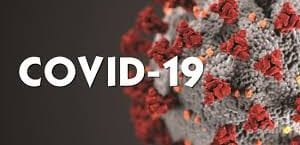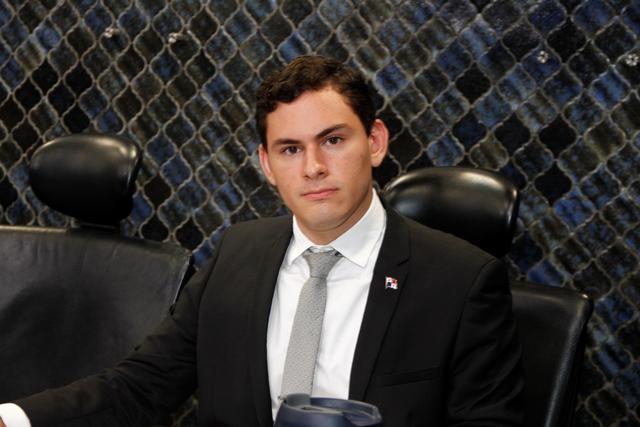Monday
Monday 13th September 2021.
September 13, 2021
 The epidemiological report of the Ministry of Health (Minsa) highlighted that this Sunday, 6 new deaths have been registered due to Covid-19, for a total of 7,137 accumulated deaths, for a lethality of 1.5%. While this Sunday in Panama there are 214 new positive cases of infected, for a cumulative total of 462,224. Meanwhile, active cases total 4,906. 5,046 tests were applied to detect those affected by the virus, a percentage of positivity of 4.2% was returned, which again reflects a decrease in cases of the new coronavirus. According to the Minsa, 4,604 people are reported in home isolation , of which 4,403 are in their residence and 201 in the so-called hospital hotels. In addition, 302 are hospitalized, of them 218 are in the wards and 84 are in intensive care units.
The epidemiological report of the Ministry of Health (Minsa) highlighted that this Sunday, 6 new deaths have been registered due to Covid-19, for a total of 7,137 accumulated deaths, for a lethality of 1.5%. While this Sunday in Panama there are 214 new positive cases of infected, for a cumulative total of 462,224. Meanwhile, active cases total 4,906. 5,046 tests were applied to detect those affected by the virus, a percentage of positivity of 4.2% was returned, which again reflects a decrease in cases of the new coronavirus. According to the Minsa, 4,604 people are reported in home isolation , of which 4,403 are in their residence and 201 in the so-called hospital hotels. In addition, 302 are hospitalized, of them 218 are in the wards and 84 are in intensive care units.
The eighth batch of 163,200 AstraZeneca anticovid vaccines arrived in Panama early this Sunday. With this, the country totals 1 million 212 thousand and becomes the first country in Latin America to receive all the doses agreed with this pharmaceutical company, the Government stressed.
Today some 921,314 students from the official and private sector throughout the country begin the third term in different educational modalities. This, after the end of the school break, as established in the 2021 school calendar. Of that figure, a global enrollment of 300,511 students studying in 1,398 schools located in the 16 educational regions of the national territory, must be incorporated into blended learning, the Ministry of Education (Meduca) reported this Sunday. 14,110 teachers must be added to these students, according to statistics from the National Directorate of Environmental Education.
The National Assembly has the duty and the power to debate the laws it issues, with citizen participation and stakeholders, “always putting the best interests of the country first.” Meanwhile, it is up to the deputies to “lay down their political-partisan interests and legislate in favor of the common good.”

Against the ropes. This is how the candidates for a position of popular election will remain independently, if the changes introduced by the Government, Justice and Constitutional Affairs Commission of the National Assembly , to bill 544, which reforms the Electoral Code , are approved . And it is that one of the modifications introduced provides that the applicants by free postulation will only have three months to collect the supporting signatures, which must represent 2% of the valid votes of the last election, according to the position and constituency that corresponds. If article 139 of the bill establishes that independents will be able to seek support firms until April 30, 2023 (the year before the elections), and they will be able to start collecting from February 2023 (according to modified article 119 by the commission), that means that applicants will have just three months (and not 15 months, as contemplated in the original legislative proposal) to gather the necessary signatures. If the modification proposed by the Government Commission is maintained, a candidate for the Presidency of the Republic by free nomination must collect, between February and April 2023, about 39,296 signatures, because according to data from the TE, the valid votes in the 2019 elections were 1 million 964 thousand 746. That is, in 90 days you must search for the same number of signatures that are currently required to form a political party. The TE and the CNRE agreed to raise the number of signatures from 1% to 2% of valid votes. The independent deputy Juan Diego Vásquez, who is part of the Government Commission and who has harshly questioned some of the modifications made to the original reform project, including this one, stated that it is a very short time, since no one can travel the country in three months to request support for a candidacy. “They, my colleagues [from the Government Commission], who are anything but stupid, they know that people, more and more, because of the work that some of us have done, are more in line with the management of a deputy by free nomination, and since they know that perhaps they will not have the votes to beat us at the polls, they are thinking [that] we will not reach the nomination, “he said. Dimitri Flores, a former presidential candidate for free nomination, also questioned the little time that would be being given to independents. “They are always going to put thousands of obstacles to true independents, because they do not want corruption to end in this nation, because it is the decades-long way of life of these traditional political groups. Why, if in the last elections we were given one more month, now they want to shorten the time? ”He asked. For Cristian Ábrego, from the Citizen Consciousness Foundation, the deputies of the parties are “terrified” of independent candidacies, because they open the possibility that people with a real interest in making changes reach the Assembly, and not only take away their seats, but that they truly transform that organ of the State and the “party” is over. And a member of the Citizen Forum for Electoral Reforms. He said that the deputies of traditional parties, especially those who had difficulties to be re-elected in 2019, know that the candidacies for free nomination are gaining strength and popularity, and represent a great threat to their continuity in office.
The three groups that seek to convene a parallel constituent in the country have collected, in total, 16,759 signatures, according to data this month from the Electoral Tibunal (TE). Each group, separately, according to the rules established by the TE, must present 580 thousand 472 in six months, corresponding to 20% of the Electoral Register of December 2020. To date, the group that has collected the most signatures is the Firmo Por Panamá Movement , with 11,564. This group, which started the collection on June 22, is made up of the Panameñista, Democratic Change and Social Independent Alternative parties, and the National Bar Association.